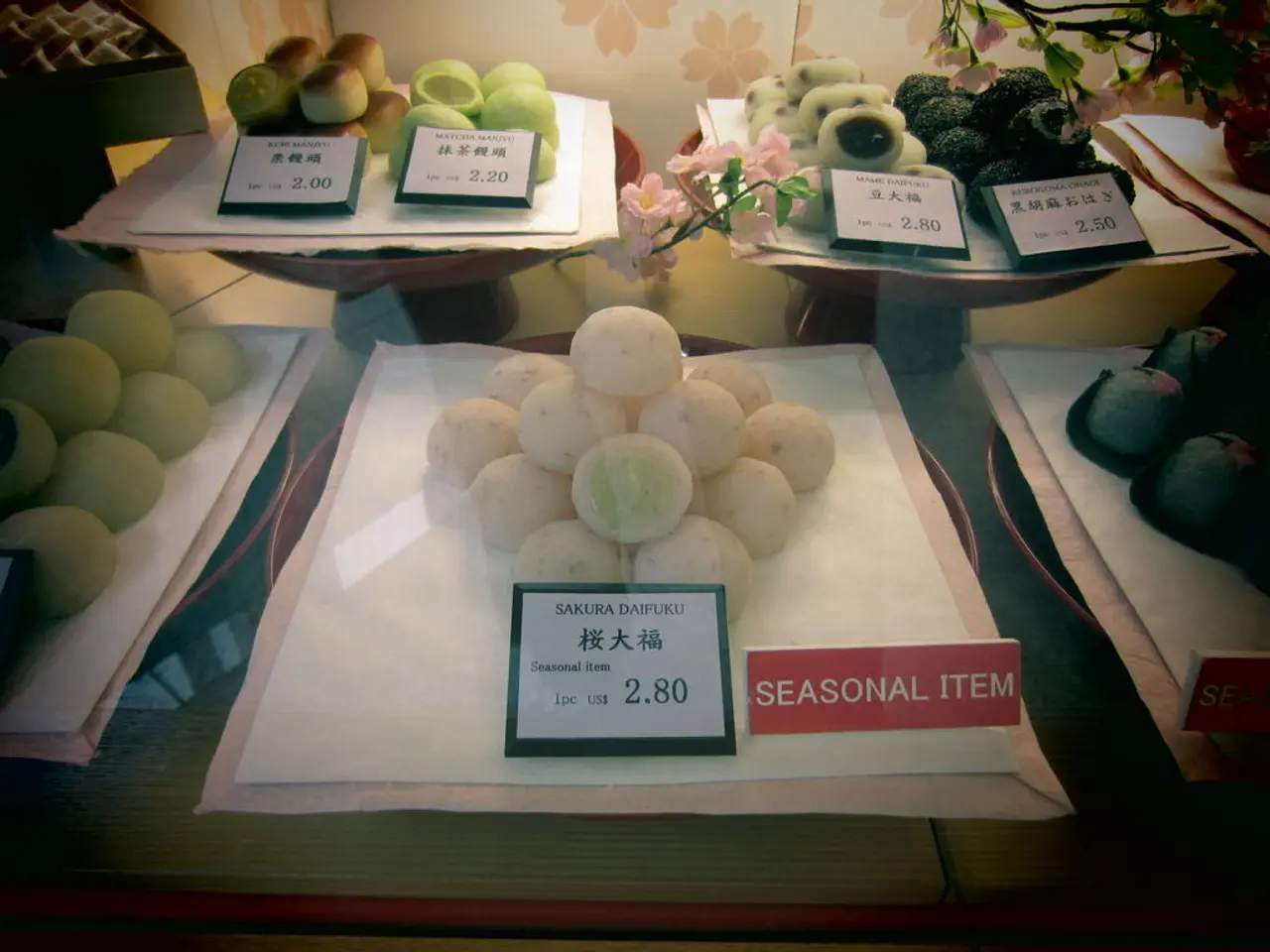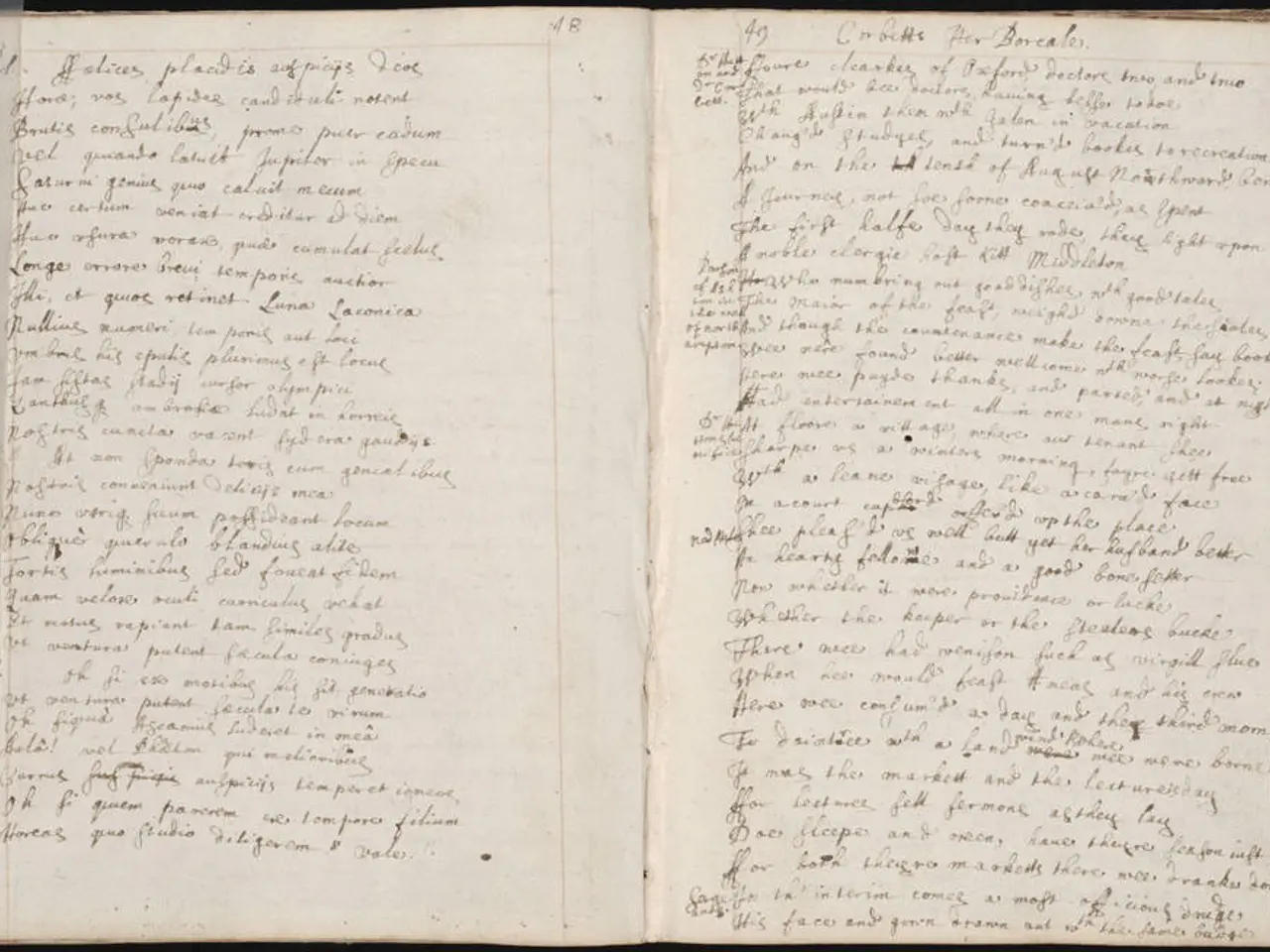At New York's Fancy Food Show, Not Only Business Deals Were Discussed, but Also Tariff Matters
In the bustling environment of the New York Fancy Food Show, concerns and uncertainty loom over Canadian food suppliers. Despite being a USMCA member, many Canadian exhibitors are expressing worries about tariffs impacting their business and U.S. buyer confidence.
The U.S. has imposed tariffs of 25%-30% on many Canadian food imports not covered under USMCA exemptions, scheduled to increase in August 2025. This has led to price increases and a dampening effect on U.S. demand, making Canadian exporters more cautious and concerned about their competitiveness in the lucrative U.S. specialty food sector, which reached $231 billion in 2025.
Ajay Dewan, senior sales manager of Ontario Impex of Canada, Inc., noted that while some products are exempt due to USMCA, others like dairy are still subject to tariffs, creating challenges for market access and buyer willingness. The tariffs have forced Canadian food suppliers to navigate increased costs, buyer hesitation, and trade policy uncertainty, complicating their participation and growth efforts at major events like the Fancy Food Show.
The Canadian government has responded with support measures to assist businesses hurt by tariffs, including expanded eligibility for work-sharing programs and trade disruption support. However, the impact on the overall business outlook and buyer confidence remains a significant concern.
Meanwhile, the show also witnessed a surge in attendance, attracting 2,500 exhibitors from 59 countries, a 14% increase from 2024. Among the exhibitors, Turkish companies showcased their products, with olive-oil exports to the U.S. increasing to $200 million in 2023, making the U.S. the biggest buyer of Turkish olive oil.
Elsewhere, Indian tea exporters are promoting flavoured tea varieties, including tea infused with spices such as cardamoms, cloves, cinnamon, etc. India produced 1.38 billion kilograms of tea in fiscal year 2024 and exported 123 million kilograms to the U.S. in the same year. Indian tea is becoming increasingly popular in the mainstream U.S. market, with Assam, a state in India, producing 50% of India's tea.
In a positive note, Alena Palmer, the director of sales for DOFREEZE, noted that the company exports to over 50 countries, including the U.S., and their products are not affected by U.S. tariffs. George Polichronis, owner of Patates 2000, commented that he had seen love and respect between Americans and Canadians despite tariffs.
As the show comes to a close, the challenges posed by tariffs remain a pressing issue for Canadian food suppliers. The uncertainty surrounding tariffs and their impact on the U.S. specialty food market continues to cast a shadow over the industry, making it a critical issue for policymakers to address.
References: 1. Source 1 2. Source 2 3. Source 3 4. Source 4
- Despite the increased tariffs on Canadian food imports, some countries like Turkey and India have thrived in the U.S. specialty food market, suggesting that global trade dynamics can be influenced by weather-independent factors such as product quality and market strategies.
- The ongoing tariffs on Canadian food imports have created challenges for market access and buyer willingness, but their impact on the global trade of other countries, such as the significant surge in Turkish olive-oil exports to the U.S., highlights the potential opportunities that may arise in alternative markets for Canadian exporters, given the right strategies and adaptability to changing trade policies.








